calsfoundation@cals.org
Betty Bumpers (1925–2018)
Betty Bumpers, wife of former Arkansas governor and U.S. senator Dale Bumpers, was known for her far-reaching efforts to promote childhood immunizations and world peace.
Betty Lou Flanagan was born on January 11, 1925, to Herman “Babe” Flanagan and Ola Callan Flanagan in Grand Prairie (Franklin County). Her mother was a homemaker, and her father was a cattle farmer and auctioneer. The family moved to Fort Smith (Sebastian County) during World War II, and later to Iowa before returning to Franklin County. She attended the Chicago Academy of Fine Art, Iowa State College (now Iowa State University), and the University of Arkansas (UA) in Fayetteville (Washington County).
Flanagan married Dale Bumpers on September 4, 1949, while he was attending law school at Northwestern University in Chicago, Illinois. The two had dated during their last year of high school, but they had been separated while attending different colleges and while Dale was in the U.S. Marines. Flanagan was teaching the fourth grade before the couple wed, and after Dale graduated from Northwestern, they returned to Charleston (Franklin County), where Betty continued to teach elementary school while her husband established a private law practice. They had three children: Brent, Bill, and Brooke.
Both Dale and Betty Bumpers were instrumental in the desegregation of the Charleston schools following the Brown v. Board of Education of Topeka, Kansas decision in 1954. After her husband became governor of Arkansas in 1971, Bumpers, as first lady, started to work on issues important to families and children. When she learned that Arkansas had one of the lowest rates of childhood immunization, she agreed to do what she could to change that. Bumpers launched a campaign to have every child in the state immunized against childhood diseases. The Every Child by ’74 campaign garnered national attention through the Centers for Disease Control (CDC), and soon Bumpers was assisting other states in developing similar immunization programs.
Bumpers moved to Washington DC after her husband’s election to the U.S. Senate in 1974. After Jimmy Carter was elected president in 1976, she was able to join forces with First Lady Rosalynn Carter to expand the immunization campaign with help from the White House, the CDC, and the former Department of Health, Education, and Welfare (now the U.S. Department of Health and Human Services).
When Ronald Reagan became president in 1981, Bumpers’s primary public concern shifted from childhood immunizations to Reagan’s policy toward the former Soviet Union (USSR), which included expanded nuclear arms production. People in the United States and Europe who opposed the policy formed the Nuclear Freeze Movement, which focused on raising local awareness and proposing new government policies. Bumpers also opposed Reagan’s policy but believed that the best way to overcome both the fear of the Soviets and the threat of war was to initiate straightforward person-to-person conversations with the Soviet citizens as a means to halt the arms race. In 1982, Bumpers and other congressional wives founded Peace Links on the idea that ordinary American women could develop lasting relationships with women in the Soviet Union based upon a shared concern for the wellbeing of children and families. In contrast to the Freeze Movement, Peace Links gave a voice to those who were not inclined to protest in the streets yet still wanted to express their desire for peace to the leaders of the two superpowers. Thousands of “mainstream women,” as Bumpers referred to them, joined Peace Links from some forty states, Europe, and the USSR. Bumpers spearheaded the organization and established the national headquarters in Washington DC with the help of longtime friend and civil rights activist Sara Murphy in Little Rock (Pulaski County). Peace Links organized discussions of peace-related issues, orchestrated rallies in cities across the country, provided educational materials for parents and educators to teach peace, held voter participation activities, and established cultural exchanges for Soviet women to visit the United States and for American women to visit the USSR.
After the collapse of the Soviet Union, the group assisted victims of the earlier Chernobyl accident, provided medical support for women and children, and started other social programs to promote friendships, such as the Peace Pals letter exchanges. Peace Links established the Eleanor Roosevelt Living World Award for outstanding women in the cause of peace and conflict resolution. Recipients included Coretta Scott King, Rosalynn Carter, and Hillary Rodham Clinton.
As the Cold War dissipated and the threat of nuclear conflict between the United States and the Soviet Union lessened, the purpose of Peace Links became more diffused, with some groups focusing on local conflicts, such as gang violence, while others began to consider global environmental issues as foundations of peacemaking. After nearly twenty years of peace activism, it was decided to close the national office in Washington DC during the summer of 2001. The Pennsylvania and North Carolina chapters, along with a few others, continued the work to support other international peace and justice organizations.
While Peace Links no longer was the center of Betty Bumpers’s attention, she continued to be a leading advocate-educator for childhood immunizations. She and Rosalynn Carter officially launched the national Every Child by Two campaign, which centered upon children under the age of two, in 1991 with the assistance of the Carter Center in Atlanta. In November 2001, Bumpers testified before the Senate Health, Labor and Pensions Committee, detailing the need for a systematic delivery of vaccines and to give support for legislation to require health plans to cover childhood immunizations. Every Child by Two has an extensive outreach program that makes disease and immunization information available for parents as well as health professionals, and the information can be accessed online.
As a result of Bumpers’s and Carter’s efforts to promote childhood immunizations and comprehensive AIDS vaccine research, President Bill Clinton dedicated the Vaccine Research Center (VRC), a new venture for the National Institutes of Health (NIH), on June 9, 1999. The VRC was named for Dale and Betty Bumpers for their tireless efforts to promote childhood immunizations and research for other vaccines as a comprehensive national health care program.
Bumpers lived in Little Rock until her death on November 23, 2018.
For additional information:
Barnes, Paula C. “Educating the Conscience: Betty Bumpers and Peace Links, a Study in Feminist Peace Work.” Ph.D. diss., University of Arkansas, 1996.
Betty Bumpers Papers (MC 1204). Special Collections. University of Arkansas Libraries, Fayetteville, Arkansas. Finding aid online at https://uark.as.atlas-sys.com/repositories/2/resources/255 (accessed July 5, 2024).
Bowden, Bill. “Betty Bumpers, State’s Former First Lady, Dies.” Arkansas Democrat-Gazette, November 24, 2018, pp. 1A–2A.
Elben, Anna L., and Martha Jane Elben. Betty Bumpers: Champion of Childhood Immunization and Peace. Lanham, MD: Rowman & Littlefield, 2013.
Leveritt, Mara. “An Ounce of Dissension.” Arkansas Times, August 1985, pp. 50–55, 79–81.
Peace Links Collection (MC 907). Special Collections. University of Arkansas Libraries, Fayetteville, Arkansas. Finding aid online at https://uark.as.atlas-sys.com/repositories/2/resources/982 (accessed July 5, 2024).
Paula C. Barnes
Hutchison School
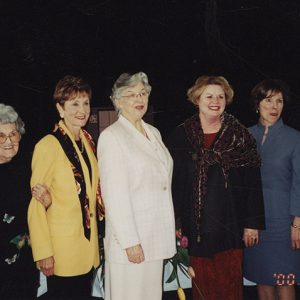 Eliza Ashley with Governors' Wives
Eliza Ashley with Governors' Wives 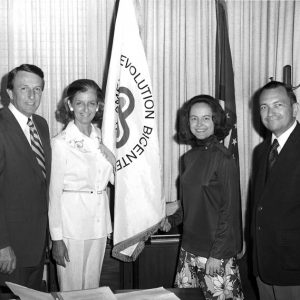 Bumpers, Bumpers, Parker, and Ferguson
Bumpers, Bumpers, Parker, and Ferguson 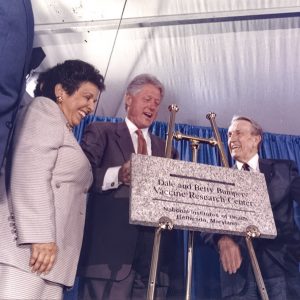 Bumpers Vaccine Research Center
Bumpers Vaccine Research Center 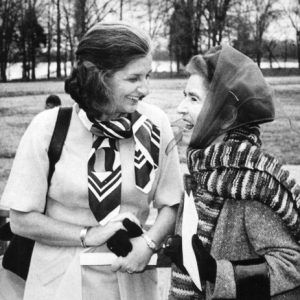 Betty Bumpers and Lily Peter
Betty Bumpers and Lily Peter 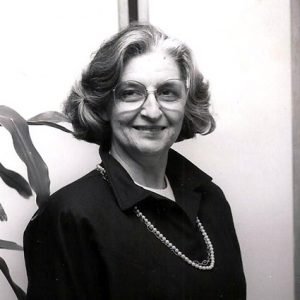 Betty Bumpers
Betty Bumpers 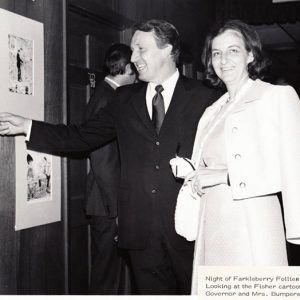 Farkleberry Follies
Farkleberry Follies 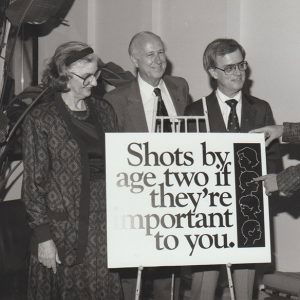 Promoting Immunization
Promoting Immunization 



Comments
No comments on this entry yet.